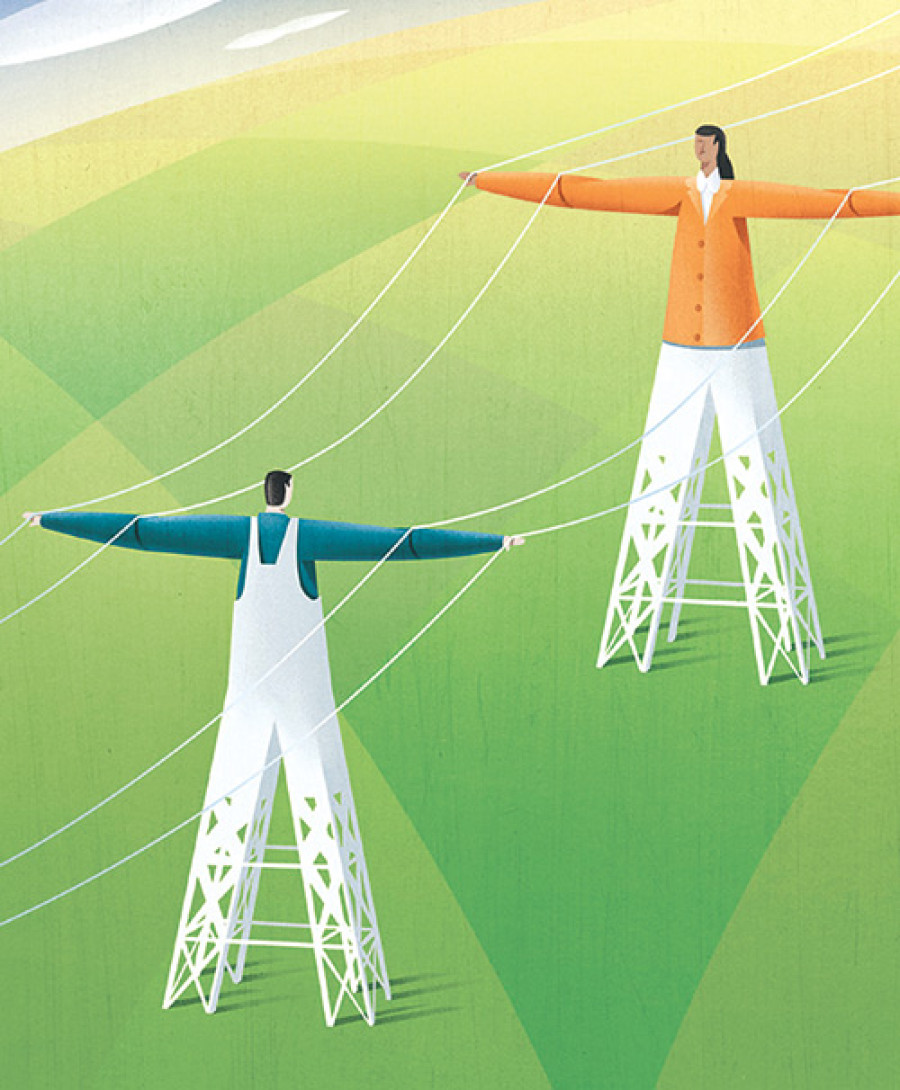Opinion
Energy promotion in Nepal
The Alternative Energy Promotion Centre (AEPC) has worked in close partnership with the leading donors Denmark and Norway for almost two decades.
Ingrid Dahl-Madse, Kjell Tormod Pettersen & Ram Prasad Dhital
The Alternative Energy Promotion Centre (AEPC) has worked in close partnership with the leading donors Denmark and Norway for almost two decades. Several other donors have been part of this partnership, significatly increasing the share of renewable energies in the total energy-mix. Through this partnership, significant results have been achieved. More than three million households have benefited from the renewable energy technologies including access to electricity for about one million households.
Lending support
Since 2012, the government of Nepal and a number of development partners including Norway and Denmark have supported the AEPC in implementation of a five-year National Rural and Renewable Energy Programme (NRREP). The programme follows a Public-Private-Partnership modality by engaging government agencies, regional service centres, private sectors, user group and financial agencies to provide clean energy technologies, solutions and services to the end users living in the rural areas of the country. One key objective of the programme was to institutionalise the Central Renewable Energy Fund which had been established with a commitment from all partners to move toward more sustainable financing solutions in the future with more focus on commercial credit and private investments, and less dependency on subsidies.
The present NRREP programme phase will come to an end by July 2017, and although we can look back on many good results, we have also learned some important lessons that hopefully will be useful for future programmes within the renewable energy sector of Nepal.
Due to a change in priorities of the Danish government, Denmark will be phasing out its development cooperation with Nepal and will not be able to participate in new renewable energy activities. The government of Nepal and Denmark have worked together on finding new development partners with an interest in the renewable energy sector of Nepal to ensure sustainability. And to support that, this important sector continues to be a key priority for the country’s electrification and rural development.
Challenges ahead
Some of the main challenges faced by the programme have been lack of capacity within many of the partner organisations, including the AEPC. The government of Nepal and the development partners have together worked to build this capacity, but this is an area that still needs to be prioritised in future engagements. Another challenge has been the irregularities and mismanagement, especially in the private sector in matters related to procurement of energy technologies and appliances at local level including cumbersome subsidy administration at the centre. Both the government of Nepal and the engaged development partners have a zero tolerance policy when it comes to mismanagement and irregularities, as the hard earned money of tax-paying citizens in all our countries has to be safeguarded. Therefore, such incidences have had a detrimental effect on implementation. The policy is to report all cases of suspicion and investigate them while halting the funding until those issues have been resolved. The AEPC and development partners are working together to resolve the pending challenges. Several new safeguard mechanisms and improved systems have already come in place and these experiences and initiatives will be useful for future development partners engaging in the sector.
Now the government of Nepal, AEPC and development partners are focusing on the phase of consolidating the results and finalising the present NRREP programme by July 2017 without delay. To avoid any disruption, it is our hope that a new programme within the renewable energy sector will start once the current phase of NRREP is completed.
We truly hope that the results achieved will be sustained and that the lessons learned will lead to even better engagements in the renewable energy sector of Nepal in the near future.
Pettersen is Norwegian Ambassador to Nepal; Dhital is Executive Director of the Alternative Energy Promotion Centre (AEPC); Dahl-Madsen is Chargé d´Affairese at Danish Embassy in Nepal




 20.12°C Kathmandu
20.12°C Kathmandu










